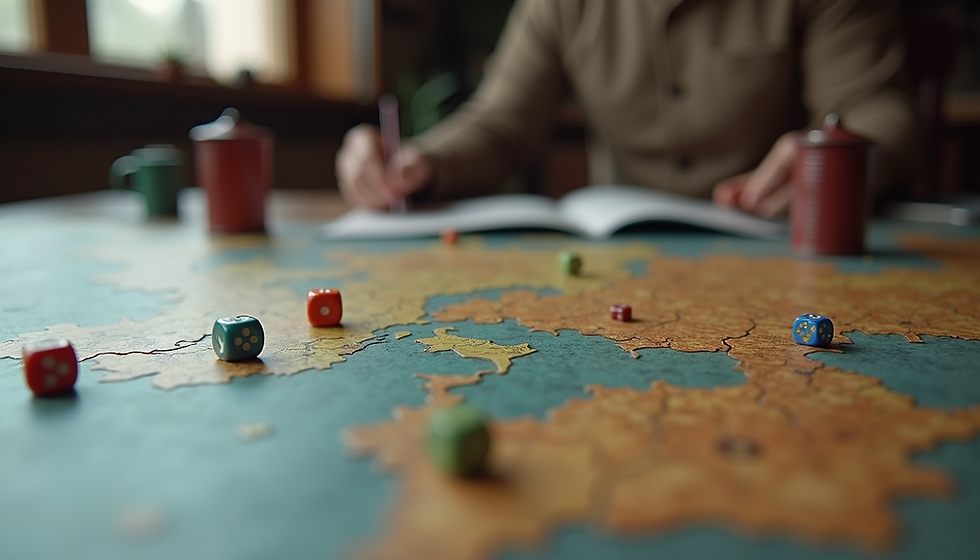Maia: Hermes’ Mother in Greek Mythology
- Sarah Jordyn

- Nov 10
- 4 min read
When diving into the rich tapestry of Greek mythology, some figures shine brightly but quietly, their stories woven into the grander epics. Maia is one of those fascinating characters. She might not be as loud as Zeus or as fierce as Athena, but her role is absolutely crucial. She’s the gentle, nurturing force behind one of the most intriguing gods of Olympus—Hermes. Ready to explore Maia’s story with me? Let’s jump right in!
Who Is Maia in Greek Mythology?
Maia is one of the Pleiades, the seven daughters of the Titan Atlas and the sea-nymph Pleione. These sisters are stars in the night sky, literally! Maia is often considered the eldest and the most beautiful of the Pleiades. She’s a figure wrapped in mystery and grace, embodying the quiet power of nature and motherhood.
In Greek myths, Maia is best known as the mother of Hermes, the messenger god, trickster, and guide of souls. But Maia’s story goes beyond just being a mother. She represents the nurturing aspect of the natural world, a gentle protector who lives in the shadows of the mountains, away from the chaos of the gods’ politics.

Maia Greek Mythology: The Mother of Hermes
Now, here’s where things get exciting! Maia’s son, Hermes, is one of the most dynamic gods in the Greek pantheon. But did you know that Maia’s role as his mother is just as fascinating as Hermes’ adventures?
According to myth, Maia gave birth to Hermes in a cave on Mount Cyllene in Arcadia. She raised him in secret, away from the prying eyes of other gods. Hermes was no ordinary baby—he was clever, mischievous, and incredibly fast from the moment he was born. Maia’s nurturing helped shape Hermes into the god we know today: a master of communication, trade, and cunning.
If you’re crafting a tabletop RPG campaign or a story, Maia’s quiet strength and her relationship with Hermes can add layers of depth. Imagine a quest where players seek Maia’s blessing or guidance to gain Hermes’ favor. Or perhaps Maia’s hidden cave is a secret location filled with ancient wisdom and magical artifacts.
Maia’s Role and Symbolism in Myth
Maia isn’t just a background character. She symbolizes growth, protection, and the nurturing power of nature. As a Pleiad, she’s connected to the stars, which ancient sailors and travelers used for navigation. This celestial link adds a cosmic dimension to her character.
Her story also highlights themes of motherhood and secrecy. Maia’s choice to raise Hermes away from Olympus’s drama shows a protective instinct that resonates with anyone who’s ever wanted to shield their loved ones from harm.
Here are some key symbolic aspects of Maia:
Motherhood and Nurturing: Maia’s care for Hermes is a classic example of maternal love.
Secrecy and Protection: Her hidden mountain home represents safety and refuge.
Celestial Connection: As a Pleiad, Maia is linked to the stars, guiding travelers and dreamers alike.
These themes can inspire game masters and storytellers to create rich narratives around Maia, blending myth with personal storytelling.

Maia Mother of Hermes: A Link to Explore
If you want to dive deeper into Maia’s story and her connection to Hermes, check out this detailed resource on maia mother of hermes. It’s packed with insights perfect for anyone looking to enrich their tabletop RPG campaigns or myth-inspired stories.
How to Use Maia in Your Tabletop RPG Campaigns
Alright, now that you know who Maia is and why she matters, let’s talk about how you can bring her into your games. Maia’s character offers tons of potential for storytelling, world-building, and character development.
1. Maia as a Quest Giver or Ally
Imagine your players stumbling upon Maia’s hidden cave. She could be a wise, enigmatic figure who offers guidance, magical items, or quests related to Hermes or the Pleiades. Her knowledge of the stars and nature could be invaluable for navigation or prophecy.
2. Maia’s Blessing and Powers
Incorporate Maia’s nurturing and protective qualities into game mechanics. Maybe players can earn Maia’s blessing, granting them enhanced stealth, speed, or communication abilities—echoing Hermes’ traits.
3. Mythical Locations Inspired by Maia
Use Maia’s mountain home as a mysterious, sacred place in your campaign world. It could be filled with ancient relics, star maps, or portals to other realms. The setting itself can inspire awe and wonder.
4. Themes of Secrecy and Protection
Maia’s story is perfect for campaigns focusing on hidden truths, secret lineages, or protective guardianship. Players might need to protect Maia or her offspring from divine or mortal threats.
5. Integrating Maia into Educational Tools
For educators using TTRPGs to teach mythology or storytelling, Maia’s story offers a gentle introduction to complex themes like motherhood, secrecy, and celestial navigation. You can create lessons or modules centered around her myth.
Why Maia Matters Today
You might wonder, why focus on Maia? Well, in a world where loud and flashy often steal the spotlight, Maia reminds us of the quiet power of care, protection, and subtle influence. She’s a perfect example of how mythology can inspire us to value different kinds of strength.
For creators and players alike, Maia’s story encourages us to explore the softer, nurturing sides of characters and worlds. She’s a beacon for inclusive storytelling, showing that every role—no matter how quiet—has immense value.
So next time you’re crafting a campaign or spinning a tale, think about Maia. She’s waiting in the shadows, ready to add magic and meaning to your story!
There you have it! Maia, the gentle mother of Hermes, a star among the Pleiades, and a treasure trove of inspiration for your next tabletop adventure. Dive into her myth, explore her mysteries, and let her story light up your gaming world!








Comments